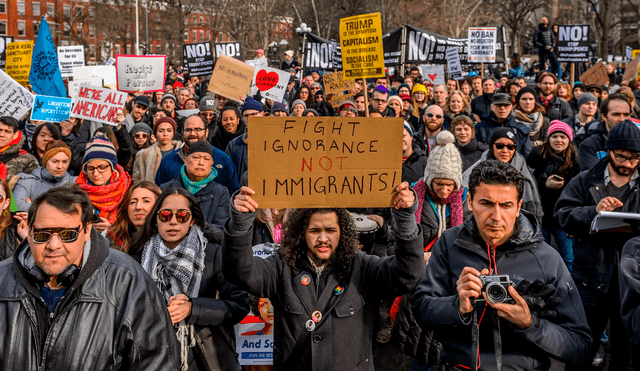U.S. braces for Nationwide ‘A Day Without Immigrants’ strike in protest of Trump’s policies
The U.S. braces for a nationwide "A Day Without Immigrants" strike as workers and businesses protest Trump’s immigration policies.

On Monday, February 3, 2025, the nationwide movement "A Day Without Immigrants" will take place across the United States, including in major cities and states with large immigrant communities. The initiative encourages immigrants to abstain from work, school, and shopping as a way to highlight their economic and social contributions while protesting against Trump’s immigration policies.
Organizers and participants aim to raise awareness about the essential role of immigrants in the U.S. workforce and economy, emphasizing their impact by demonstrating what happens when they disappear for a day.

ALSO SEE: Pete Hegseth confirms plan to send 'Worst of the worst' criminal migrants to Guantanamo Bay
What's the purpose behind the movement "A Day Without Immigrants 2025"?
The "A Day Without Immigrants" strike is intended to send a strong message to both the Trump administration and the general public about the importance of immigrants in the U.S. economy, businesses, and daily life.
With tougher immigration policies under Trump’s second term—including deportations, restrictions on work permits, and a rollback of protections for undocumented immigrants—the movement seeks to demonstrate how these policies negatively impact both immigrant families and the broader U.S. economy.
Supporters of the movement argue that Trump’s policies have created uncertainty and fear within immigrant communities, leading many to push back through peaceful demonstrations
By avoiding work, school, and shopping for a day, immigrant workers and business owners show their influence by making their absence felt across multiple sectors, from restaurants and retail to agriculture and construction.

ICE raids have generated lots of deportations across the US. Photo: iStock.
Echoes of the 2017 ‘A Day Without Immigrants’ protest under Trump
This strike draws comparisons to the 2017 "A Day Without Immigrants" protest, which took place during Trump’s first term. The movement that year resulted in thousands of business closures and demonstrated how restrictive immigration policies could disrupt industries reliant on immigrant labor.
That 2017 protest came in response to Trump’s initial crackdown on immigration, deportation raids, and the push for a border wall. Now, in Trump’s second term, immigration remains a highly controversial issue, with policies focusing on stricter deportation efforts, limitations on work permits, and the rollback of protections for undocumented individuals.
With Trump doubling down on his hardline stance, many immigrants and activists believe that this year’s protest is more urgent than ever.
The political and economic stakes of the 2025 Protest
As the country prepares for the upcoming strike and business closures, political analysts note that this movement could influence national discussions on immigration reform.
The protest puts pressure on lawmakers and government officials to reconsider policies that negatively impact immigrant communities. By withdrawing their labor and economic participation for a day, immigrants hope to demonstrate their economic power and social importance in a way that politicians cannot ignore.
While Trump’s administration has defended its immigration policies as necessary for national security and economic stability, critics argue that these measures harm both families and businesses that rely on immigrant workers. The impact of the protest will likely become part of the broader debate on immigration reform, shaping the conversation as Trump moves forward with his second-term agenda.